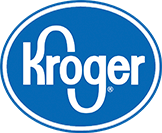
Nuts offer proven health benefits
More than a decade of large-scale scientific studies confirm that nuts and nut butters offer important health benefits, from lowering “bad” cholesterol or LDL, to cutting the risk of heart disease, managing weight, staving off Alzheimer’s disease, controlling blood pressure and reducing the likelihood of Type 2 diabetes and gallstones in women:
- Heart Health Four separate major trials involving a total of 179,000 participants – the Physician’s Health Study, Iowa Women’s Health Study, Harvard Nurses’ Health Study 1 and a study of Seventh Day Adventists conducted by Loma Linda University in California 2 – all came to the same conclusion: Nut consumption may lower the incidence of heart disease in both men and women. In recognition of these findings, the FDA approved a qualified health claim—the first-ever for a food—for inclusion on package labels: “Scientific evidence suggests, but does not prove, that eating 1.5 ounces per day of most nuts, as part of a diet low in saturated fat and cholesterol, may reduce the risk of heart disease.”
- Weight Management In the same Loma Linda University study referenced above, researchers determined that nut consumption helped participants manage their weight, possibly due to the “good” fat and protein content in nuts helping to satisfy the participants’ appetites and reduce their caloric intake. 3 Similarly, studies at both Brigham and Women’s Hospital and the Harvard School of Public Health found that people on a Mediterranean-style diet of mono and polyunsaturated fats like those found in nut butters and healthy oils, may be more successful in keeping weight off for a longer period than people on a traditional low-fat diet. 4
- Type 2 Diabetes Researchers at the Harvard School of Public Health found that women who ate one tablespoon of peanut butter five or more times a week reduced their risk of developing Type 2 diabetes by 21 percent. 5
- Alzheimer’s Disease A study conducted by researchers at New York’s Columbia University indicated that a diet rich in green leafy vegetables, nuts, whole grains, tomatoes and fish, and low in red meat and saturated fats may protect against Alzheimer’s disease. 6
- Gallstone Prevention Twenty years of dietary data collected on 80,000 women from the Nurses’ Health Study showed that women who eat least one ounce of nuts or about two tablespoons of nut butter each week lower their risk of developing gallstones by 25 percent. 7
- Blood Pressure Reduction Nuts are a recommended component of the DASH diet (Dietary Approaches to Stop Hypertension), which is a dietary plan clinically proven to significantly reduce blood pressure. Endorsed by the National Heart, Lung, and Blood Institute, the DASH diet recommends eating between four and five servings per week of its “nuts, seeds and legumes” grouping. 8
What about Aflatoxin?
Many consumers today are concerned about aflatoxin, and rightfully so. A naturally occurring substance that can come from mold on foodstuffs, such as corn and peanuts, especially those that are processed or stored in a hot, wet environment, aflatoxin is believed to be carcinogenic when consumed at high levels. Though the USDA and FDA still permit minute levels that have been determined to be safe in foods, both agencies continue to study and monitor aflatoxin and its effects. At MaraNatha, the purity of our products and the safety of our customers are of paramount importance. We demonstrate this by employing state-of-the-art protocols for handling, sorting, storage and climate control that strictly control the development of aflatoxin. As a result, we can proudly assert that every MaraNatha nut butter is virtually aflatoxin free.
- 1 http://www.bmj.com/cgi/content/full/317/7169/1341
- 2 http://www.nutstudies.org/previousstudies.html
- 3 http://www.nutstudies.org/previousstudies.html
- 4 http://www.peanut-institute.org/BWH_PR.html
- 5 http://jama.ama-assn.org/cgi/content/abstract/288/20/2554
- 6 http://findarticles.com/p/articles/mi_hb4692/is_200308/ai_n17231116/
- 7 http://www.whfoods.com/genpage.php?tname=foodspice&dbid=98
- 8 http://www.nhlbi.nih.gov/health/public/heart/hbp/dash/







